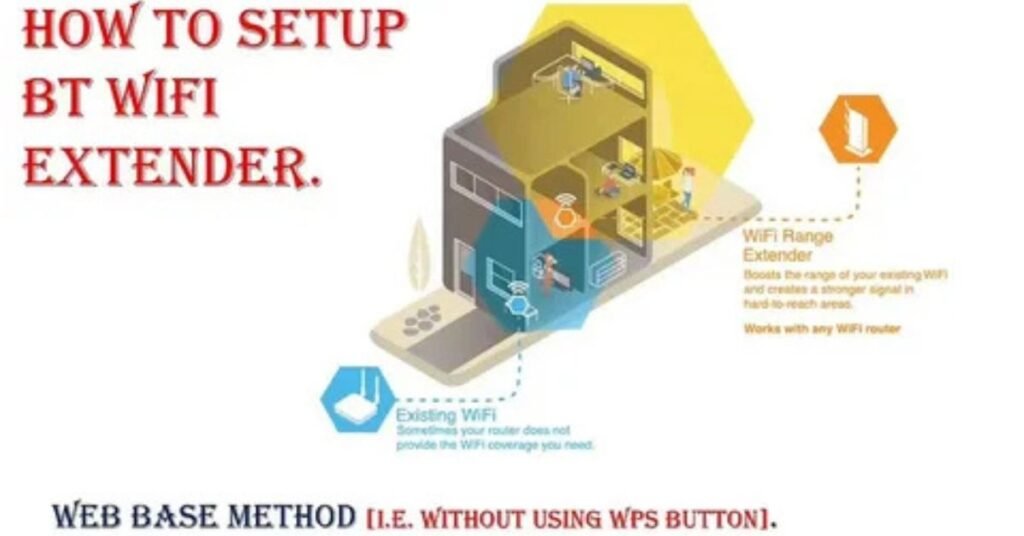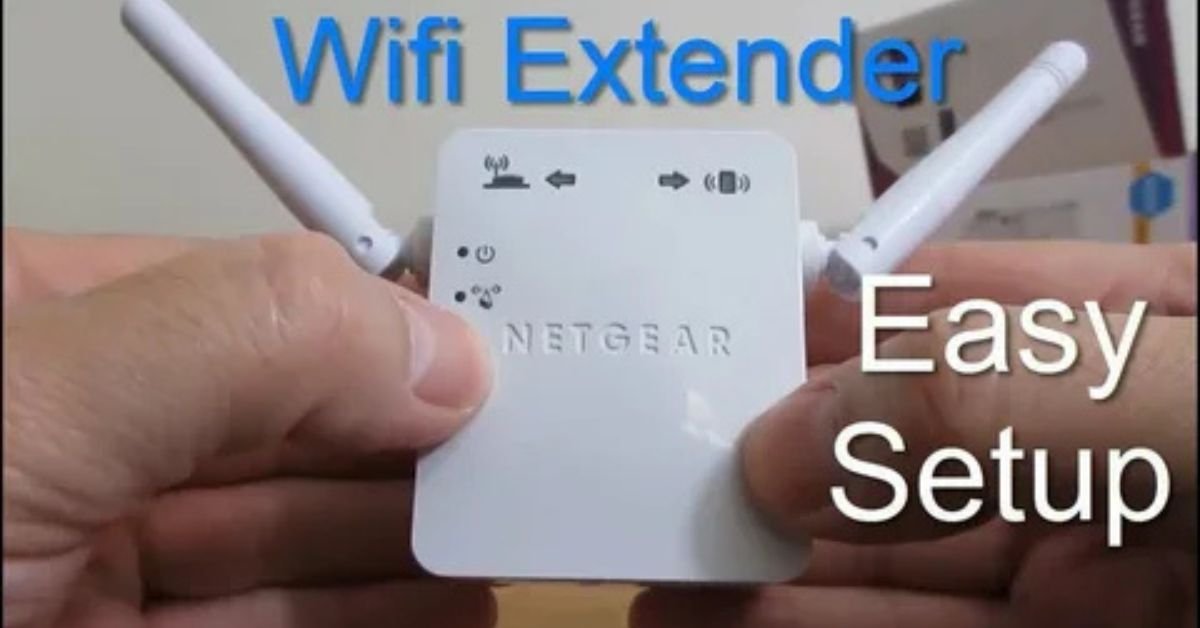Introduction to Wi-Fi Extenders
A Wi-Fi extender, also known as a Wi-Fi repeater or range extender, is a networking device designed to extend the coverage area of your existing Wi-Fi network. It helps solve the common problem of weak or unavailable Wi-Fi signals in certain building areas by receiving your router’s Wi-Fi signal and then retransmitting it. The extender effectively boosts the signal and increases its range.
Suppose you’re experiencing poor Wi-Fi performance or dead zones in your home or office. In that case, a Wi-Fi extender can provide more substantial signal coverage, ensuring you can maintain a stable internet connection even in the furthest corners of your space.
How Does a Wi-Fi Extender Work?
Wi-Fi extenders are designed to extend the range of your Wi-Fi network by receiving the signal from your router and redistributing it. The process involves two main functions:
- Receiving the Signal: The extender connects to your Wi-Fi network through your router. It picks up the Wi-Fi signal that your router is broadcasting.
- Amplifying and Re-broadcasting the Signal: Once the extender receives the signal, it amplifies it and broadcasts it further to areas where the original Wi-Fi signal is weak or unable to reach. This process effectively increases the coverage area of your network.
There are two primary methods by which Wi-Fi extenders can work:
- Signal Repeating: Some extenders repeat the signal from the router, relaying the original signal to new areas.
- Creating a New Network: Other extenders create a new network with a name similar to (SSID) to your original Wi-Fi. This allows devices to connect seamlessly to the new network, providing better coverage in needed areas.
Key Features of Wi-Fi Extenders
- Increased Coverage Area: The primary purpose of a Wi-Fi extender is to improve the Wi-Fi range in areas where the router’s signal is too weak or doesn’t reach. It’s perfect for larger homes, offices, or multi-story buildings with spotty coverage.
- Easy Setup: Wi-Fi extenders are often plug-and-play devices that are relatively easy to set up. Most models require minimal configuration, and many come with a WPS (Wi-Fi Protected Setup) button that allows you to connect the extender to your router at the push of a button.
- Affordable Solution: Compared to other networking solutions like upgrading to a new router or installing a mesh network, Wi-Fi extenders are a more affordable option to boost your existing Wi-Fi signal.
- Two Bands (Dual-Band Extenders): Some Wi-Fi extenders support dual-band Wi-Fi, which means they can operate on both the 2.4GHz and 5GHz bands. This can help balance the network’s load and improve performance in high-traffic areas.
- Compact and Discreet: Most Wi-Fi extenders are small, plug-in devices that don’t take up much space or require complex installation. They can be conveniently placed anywhere the signal is weak in your home.
Benefits of Using a Wi-Fi Extender

- Improved Signal Coverage in Dead Zones: A Wi-Fi extender is most useful in areas where your Wi-Fi signal drops significantly or is unavailable, such as basements, attics, or far rooms. It ensures you can still access the internet without moving closer to the router.
- Better Streaming and Gaming: In areas with poor Wi-Fi coverage, streaming videos, gaming, or video conferencing can be frustrating due to buffering or dropped connections. A Wi-Fi extender can reduce these issues by providing a stronger signal, improving your internet experience.
- Cost-Effective: Wi-Fi extenders are generally much cheaper than upgrading to a more expensive router or installing a complete mesh network system. They provide a budget-friendly solution if you need to extend coverage to certain parts of your home.
- Increased Speed and Stability: A stronger Wi-Fi signal often translates to more stable and faster internet speeds, which is especially helpful for activities that require a steady connection, such as online gaming or video calls.
- Enhanced Mobility: With a Wi-Fi extender, you can roam freely throughout your home or office without worrying about losing your connection, as the extended network ensures a more consistent signal.
When Should You Use a Wi-Fi Extender?
Wi-Fi extenders are particularly useful in the following situations:
- Large Homes or Offices: A Wi-Fi extender can bridge the gap and signal strength to those hard-to-reach areas in spaces where the router is placed far from certain rooms or levels.
- Multiple Floors: If your home or office has multiple floors and your router is on one floor, the Wi-Fi signal may be weak or non-existent on other levels. A Wi-Fi extender can help ensure the signal reaches all floors.
- Thick Walls or Obstructions: Some buildings have thick walls or obstacles that block or weaken Wi-Fi signals. A Wi-Fi extender can bypass these barriers by amplifying the signal and improving its range.
- Temporary Network Expansion: If you’re hosting an event, have guests over, or need to temporarily extend your Wi-Fi coverage to outdoor areas, a Wi-Fi extender can quickly expand the range of your existing network.
Wi-Fi Extender vs. Mesh Wi-Fi System
While a Wi-Fi extender is quick and cost-effective, it’s not always the best choice for everyone.
- Wi-Fi Extender: This is ideal for small to medium-sized homes where you only need to extend coverage to a few specific areas. However, it may create a separate network (SSID) for the extended signal, which means devices might switch between the networks based on which one has a stronger signal.
- Mesh Wi-Fi System: A mesh network uses multiple nodes (or access points) around your home or office to create a seamless Wi-Fi experience. Mesh systems provide better coverage across large or multi-story buildings and offer a single, unified network for all your devices. They are more expensive than extenders but are more advanced and efficient in signal distribution.
Conclusion
In summary, a Wi-Fi extender is an excellent solution for those who need to improve the range and coverage of their existing Wi-Fi network. It helps eliminate dead zones, boosts signal strength, and provides a more stable internet experience at a lower cost than other solutions like upgrading your router or investing in a mesh Wi-Fi system.
Whether you’re trying to cover a large home, a multi-floor building, or a space with thick walls, a Wi-Fi extender can make a noticeable difference in the quality and reliability of your Wi-Fi connection.
Latest posts






